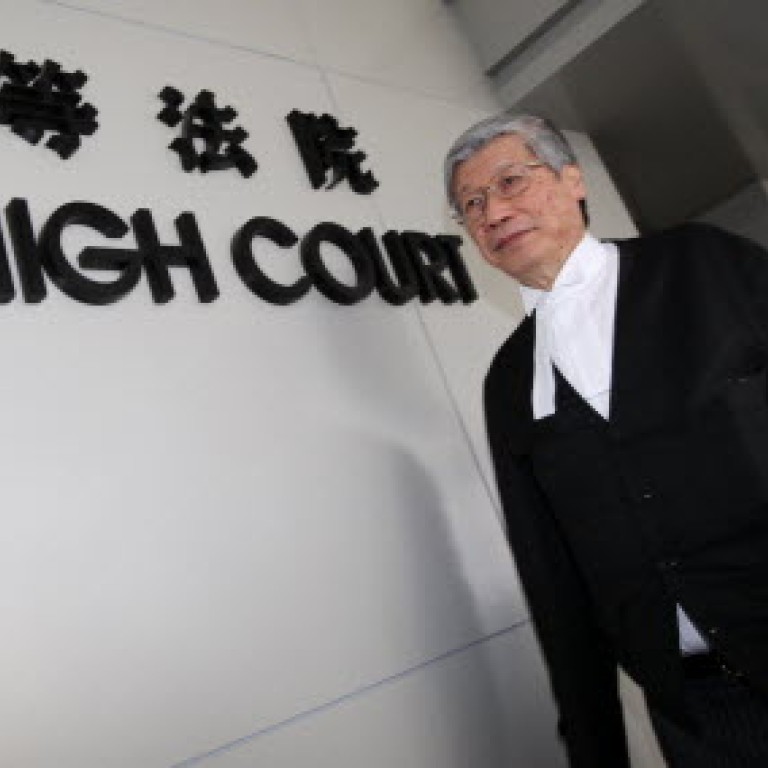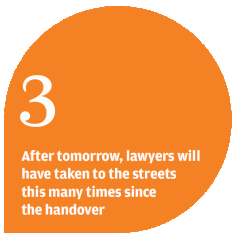
Rallying words for rule of law
Senior barrister voices condemnation of Beijing's white paper ahead of tomorrow's rally by legal sector in defence of judicial independence
Calls are intensifying for lawyers to join a march tomorrow to defend judicial independence and oppose Beijing's white paper asserting its "comprehensive jurisdiction" over Hong Kong.

It failed the test of ensuring a balance between "one country" and "two systems", Denis Chang Khen-lee, the city's second most experienced senior counsel on the Bar Association list, told the .
And in a move likely to be seen as another heavyweight endorsement of tomorrow's march, he said he would take part.
"Autonomy, like virginity, once lost cannot be retrieved," he warned.
Some 30 legal-sector representatives, including lawmaker Dennis Kwok, are behind the call to march.
Lawyers will set off from the High Court on Queensway, Admiralty, tomorrow evening and march to the Court of Final Appeal on Battery Path, Central.
The call to take to the streets comes despite attempts by Secretary for Justice Rimsky Yuen Kwok-keung and other government officials to dismiss criticism that the white paper dealt a blow to the city's rule of law.
Chang, however, chastised the white paper for discouraging judicial independence and the rule of law through "its attempt to introduce an ambiguous requirement of 'patriotism' as a qualification" for judges, whom it defines as administrators of Hong Kong.
Chang, a previous chairman of the association of barristers, sat on the executive committee of the now-defunct Basic Law Consultative Committee, alongside Leung Chun-ying, the current chief executive, in the mid-1980s.
The barrister yesterday cited a speech from the year 2000 by Qiao Xiaoyang , now chairman of the National People's Congress' Law Committee, in which he stated that, as far as the "one country, two systems" principle was concerned, "one aspect cannot be stressed to the neglect of another".
Chang said: "The white paper, sadly, fails this test. It has - by what it says and doesn't say - stressed the state's unitary nature and 'comprehensive jurisdiction' to the detriment of [Hong Kong's] high degree of autonomy."
Chang added that the Basic Law stipulated no department of the central government could interfere in the city's internal affairs. The white paper "singularly fails to mention this non-interference principle", he said.
Tomorrow's march will be the third held by the legal profession since the 1997 handover.
On June 30, 1999, more than 600 lawyers took to the streets after the NPC Standing Committee made an interpretation of the Basic Law that overturned a landmark right-of-abode judgment issued by the city's top court.
Then on April 19, 2005, about 850 people, including more than 550 from legal circles, rallied in protest against another interpretation widely seen as a pre-emptive move to ensure no court action could derail the chief executive election that year.
Former lawmaker Margaret Ng Ngoi-yee, who helped plan the previous two marches, urged lawyers to join tomorrow's rally.
This was a "critical moment" for Hong Kong, Ng said. "The white paper is a fundamental and all-out attack on the rule of law.
"It is not only about the judiciary, but a repudiation of 'one country, two systems', completely toppling guarantees under the Sino-British Joint Declaration," she said.


